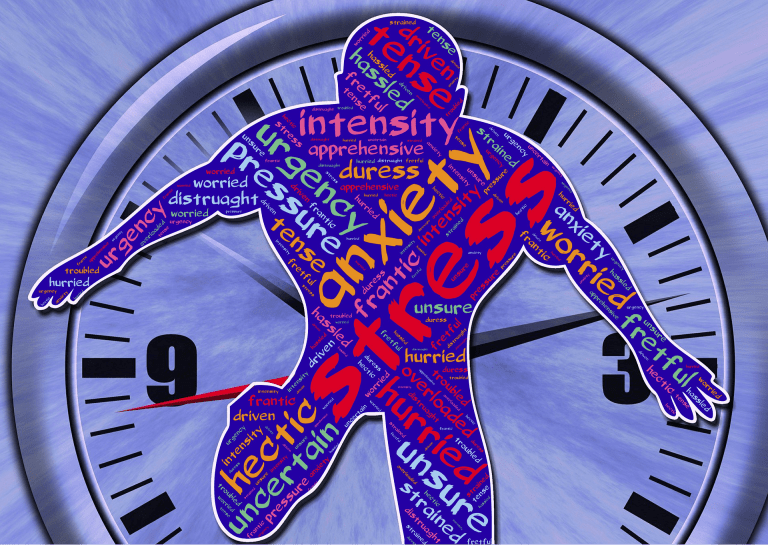Most people are experiencing “considerable stress” at levels higher than in recent years, says the American Psychological Association in its annual report on the nation’s collective mental health.
That means pretty much everyone you work with – your employees, clients and colleagues – are feeling stretched to the limit, and the pressure is likely to rise during the holidays.
“Even in perfectly normal years, the last few months seem to be abnormally stressful,” writes lawyer Mary Crane, author of the 100 Things You need to Know book series, in this post for the National Law Review. “This year, the ongoing pandemic will heighten the stresses your internal clients will experience. You can help them by communicating that everyone is feeling a bit stressed right now and sharing strategies that your clients can use to help build resilience.”
Stress levels nationwide stayed at consistently high levels throughout the spring and summer. On a scale of one to ten, the levels of stress reported were 5.9 in April/May, 5.6 in May/June and 5.7 in July.
Among lawyers, 32 percent are worried about managing their current workload during the crisis, 31 percent worry about a broader slowdown in their business, and 23 percent worry about collaboration with their remote workers.
Alta Pro Insurance Services wishes you a Happy New Year and a terrific 2021. Our Lawyers Risk Purchasing Group offers benefits to brighten every day of the year, including Reminger ProLink claims repair, discounts on Clio software products, Ask the Risk Pro, free CLE webinars, the Pro Practice Playbook, and more. Here’s how to join.
Lawyers are particularly susceptible to depression, anxiety and stress for three reasons, Crane writes, citing Martin Seligman, Director of the Positive Psychology Center at the University of Pennsylvania:
- Pessimism. Studies show the law attracts people with pessimistic outlooks, and that the nature of the work tends to reinforce that orientation.
- Lack of “decision latitude.” “Decision latitude refers to the number of choices one believes he or she has on the job,” writes Crane. “Individuals who work in fields in which high demands are placed upon them and they experience low decision latitude – i.e., there is one right and one wrong option – experience higher levels of depression and cardiovascular disease.”
- Win-loss mentality. Billing thousands of hours, prevailing in court, and reaping lots of revenue will not reduce stress or bring internal peace. In fact, the opposite may occur.
American Psychological Association: Signs of Anxiety
- Persistent worry or feeling overwhelmed by emotions.
- Excessive worry about a number of concerns, such as health problems or finances, and a general sense that something bad is going to happen.
- Restlessness and irritability.
- Difficulty concentrating, sleep problems and generally feeling on edge.
Signs of Depression
- A lack of interest and pleasure in daily activities.
- Significant weight loss or gain.
- Insomnia or excessive sleeping.
- Lack of energy or an inability to concentrate.
- Feelings of worthlessness or excessive guilt.
- Recurrent thoughts of death or suicide.
Risk Factors for Suicide
- Talking about dying or harming oneself.
- Recent loss through death, divorce, separation, even loss of interest in friends, hobbies and activities previously enjoyed.
- Changes in personality like sadness, withdrawal, irritability or anxiety.
- Changes in behavior, sleep patterns and eating habits.
- Erratic behavior, harming self or others.
- Low self-esteem including feelings of worthlessness, guilt or self-hatred.
- No hope for the future, believing things will never get better or nothing will change.
10 Thing You Can Do to Combat Holiday Stress
- Maintain a healthy social support network.
- Create an atmosphere where people feel free to talk about their stress.
- Maintain steady communication.
- Get regular physical exercise.
- Get an adequate amount of sleep each night.
- Create structured team and individual check-ins.
- Let others know when it’s best to reach you.
- Offer encouragement and positive feedback.
- Display empathy, especially to workers who are also caregivers at home.
- Show up.
Source: National Law Review
If you practice in Wisconsin, Texas, Minnesota, Ohio, Illinois, Indiana or Michigan, you can stay on top of ethics and risk management news by being a member of Alta Pro Lawyers RPG. You’ll get access to free webinars, the Pro Practice Playbook, Reminger ProLink, Ask the Risk Pro and more. Here’s how to join.

















